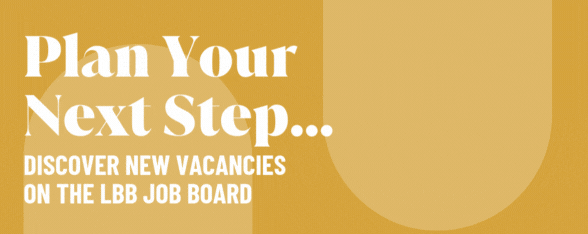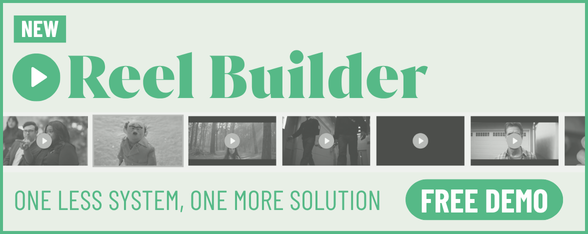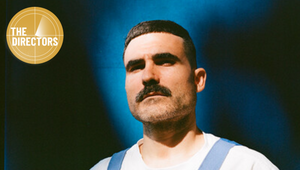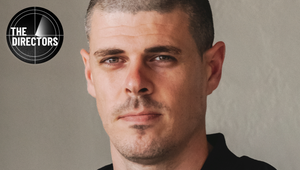
The Problem Solving Instincts That Brought Victoria Ventura and Mailén Gayoso Into Production

Victoria Ventura is head of production at BOL. She oversees and coordinates all aspects of the production process, from planning to execution. After five years with the team, she has produced over 40 projects and managed teams of more than 25 talents.
Born in Barcelona and academically trained in art, Victoria is always seeking to balance production efficiency with creative and design quality.
Mailén Gayoso was born and raised in Buenos Aires. She studied advertising creativity at a tertiary institute and pursued several years of a fine arts degree at the University of Buenos Aires. Her creative background is further enriched by courses in photography, video editing, guitar, and singing.
She began her career in advertising over a decade ago, working as a creative copywriter and community manager. Over time, she transitioned into production, focusing primarily on animation studios and balancing both in-house and freelance roles. Today, she works as a line producer at BOL.
The two of them sat down with LBB to discuss their first roles in production, keeping projects moving and protecting creative…
LBB> What first attracted you to production – and has it been an industry you’ve always worked in, or did you come to it from another area?
Victoria> It actually started during my master’s program – I was studying production and communication for cultural and creative institutions. And from the beginning, it was super clear that I leaned way more toward the production side. It just made sense to me – organising, managing, thinking fast on your feet. It felt really natural, like something I already had in me.
What really pulled me in was the idea that someone’s behind the scenes, making everything happen, holding it all together. That was fascinating. My mom said, “You love art, but do you want to be in front of the art world or behind it?” I thought about it all summer and decided I wanted to be behind it – supporting, shaping, but not necessarily making the art myself. Same with production: you’re not the one on the stage or in the spotlight, but you’re the one making sure everything runs. You’re the brain in the background. And I love that.
Mailén> I started working in advertising just over 10 years ago, as a creative copywriter and community manager at agencies. It was fun, but I realised I was far more interested in being on the execution side. There was something about studios and production houses that drew me in – I wanted to be part of what happens ‘in the kitchen’, behind the scenes.
So I decided to leave the agency world, and a friend who was a producer connected me with an animation studio. At the time, I didn’t know much about the field, but that was my entry point – and I’ve stayed ever since.
LBB> What was your first role in production, and how did it influence your approach and career?
Victoria> My first proper production role was as a direction assistant for a festival called Mira. That was my first real contact with Snoop, a creative agency in Barcelona. They were handling the festival’s campaign, and I was the one managing them from the client’s side – telling them, “Now we need the poster. These are the names. This is the deadline.” I was coordinating them, and I loved it.
It was such a privileged position, honestly. I even got to work with Edu Torres, who did the teaser, which was this amazing full 3D piece. That’s when I knew: I want to be close to people doing things like this and soon after, I stepped into Device Animation Studio and BOL.
Mailén> My first role was as a production assistant. I didn’t have any direct contact with clients, but I worked closely with every department on the team. That experience helped me start to understand how this big machine works, the value of each role, and – above all – the fact that without teamwork, it’s very hard to achieve a great final result.
LBB> How did you learn to be a producer?
Victoria> My Master’s degree gave me a great foundation – I had some amazing teachers. One standout memory: Apollo (an iconic venue in Barcelona affiliated with the program) asked us to produce a concert. That’s when I realised things like, “Oh, I need to be an Excel pro,” and started picking up all the little tools you need in this job.
But honestly, production is one of those things where someone can explain how to fly a plane, but you won’t really know how to fly it until you’re in the cockpit. Same thing here. You need to live through the chaos, the tight deadlines, the weird client requests – that’s when you really learn. That’s when you figure out how to set the tone, define the process, and lead a team.
Mailén> I learned by doing. But I think it also comes down to my personality, haha. I enjoy being a producer even in my everyday life and personal projects; organising, facilitating, helping people communicate, and moving things forward so that they happen. That mindset really shaped how I approach production.
LBB> Looking back, can you tell us about a production that really helped you grow as a producer?
Victoria> ‘Primavera Sound’. It was wild. I was the line producer and worked closely with Pol Solà, the creative director. We had over 30 talents involved, and we produced three minutes of animation in about a month and a half.
It taught me everything – how to manage crazy schedules, work across multiple teams and directors, and deliver under intense pressure. I remember we had a calendar that we updated every single minute of the day, just to keep everything moving.
And beyond the technical side, it was emotionally meaningful. It was a festival I love, my city that I love, and a client we’d always dreamed of working with. It was a privilege - and a massive learning moment.
Mailén> What comes to mind are a few productions with extremely tight deadlines, where you have to give it your all, as a producer and as a team. Those kinds of experiences are intense but incredibly formative. They prepare you to handle pretty much anything that comes your way after that.
LBB> What’s your favourite thing about production and why?
Victoria> The relationships you build – 100%. It’s all about empathy, listening, understanding, and making sure we’re all swimming in the same direction. I love the collaborative aspect of this work. I need you, you need me – so let’s figure out the easiest, smoothest way to get it done together.
Of course, it’s tricky. We sit in the middle of competing interests – the client, the creatives, the executive producers. But we’re the ones who understand all sides and keep everything balanced. And it’s not just logistics. It’s about making sure the team remembers the goal – the brief, the client’s needs, the why of the project. We keep everyone grounded while also protecting the creative ambition and pushing things forward.
Mailén> I love working with talented people I admire, and I’ve been lucky enough to do that on most of the projects I’ve been part of. I enjoy being in the ‘kitchen’, watching each step come together as we build the final piece. It’s truly fascinating. And I love being in a position to help make those beautiful things happen.
LBB> How has production changed since you started?
Victoria> AI is surely shaking things up. It’s something we need to think about - how can we use it to our advantage instead of letting it threaten what we do?
But luckily, production is still very human. Clients want to feel that connection. They want to see the real people behind a project. And that's something tech can’t replace – our empathy, our communication, our ability to manage emotions and relationships.
And beyond clients, the relationships with our teams are just as important. We’re not commanding an army of minions – we rely on talented people, and those relationships are built on trust, respect, and passion.
Mailén> For starters, AI didn’t exist when I began. Today, it’s having a big impact on the audiovisual world, especially in animation. That inevitably affects my role, too, since the way we do things and some of our processes are changing.
For example, like how we used to search for references for a treatment, and now we can generate them directly. More specifically, in terms of production, I think the evolution of tools like Slack, Drive, Dropbox, Figma, Trello, and others has transformed how we work.
And after the pandemic, the shift from in-person work to remote setups also changed many aspects. It brought new challenges, like keeping the team connected and communication flowing smoothly despite the distance.
LBB> And what has stayed the same?
Victoria> Production still doesn’t get the recognition it deserves. It’s the invisible part of the process. Everyone celebrates the creativity, the final image, and the look. And that’s fine – we don’t need the spotlight. But it’d be great to see more appreciation for the strategy, the stress, the planning, and the problem-solving that goes into making something successful.
There should be awards for that too – not just for how pretty something looks, but for how well it ran, how it met the client’s goals, how smoothly it came together. That’s real value.
Mailén> The importance of keeping the team connected and organised, with clear priorities. Also, keeping the client reassured and maintaining a smooth back-and-forth for any questions or updates.
And finally, the pursuit of perfection and the goal of delivering a high-quality piece are still fundamental to production.
LBB> Do you think being a producer is something you’re born with, or can it be learned?
Victoria> I honestly think it’s kind of innate. You can learn the tools and the workflows, sure. But that instinct to organise, to support others, to plan ahead and problem-solve – that’s something you just have.
I love being the one who makes things happen, who helps people feel calm and supported while doing something they love, planning trips, organising birthdays, helping friends bring their ideas to life. And in creative projects, it’s kind of magical – to be the one who helps guide the team to the finish line. That’s why I say: you ARE a producer, or you’re not.
Mailén> It’s definitely something you can learn. To be an effective producer, you need to be able to bring calm to the team, understand the project’s priorities, and help structure the workflow. It’s also crucial to balance meeting the client’s needs while taking care of the team. And above all, staying grounded in high-pressure situations.
LBB> Which production project are you most proud of and why?
Victoria> ‘Primavera Sound’, for sure – for all the reasons I said earlier.
But 2024 was huge for me, too. I hit goals I didn’t even know I had. The production plan I put together for Meta was actually a key reason we won the pitch – the client told us that! That was such a moment, like, “Wow, it’s not just about the creative anymore.” It was a well-paid, super creative project where we tried new techniques we’d never done before. I even got this massive Excel from the client with 700 copy variants, and I managed to consolidate them down to 48 or 49. I literally had all the printouts on a table like a puzzle, matching ideas and concepts to build something that made sense. And it worked!
Also, the Verdy projects we worked on – Nike, Kenzo, Beats. These are dream brands for me. Seeing something you touched up on a Times Square screen? That’s next-level. I’m genuinely proud of being part of that.
Mailén> From my current role, I greatly enjoyed working on projects for La Mer, Kenzo, Louis Vuitton, and MiraLAX. At other studios, I especially loved working on pieces for NotCo, Flamin’ Hot, and Spotify, among many others.
What I value most is the final result. I loved how the mentioned pieces turned out, both creatively and artistically. They’re the kind of projects you’re proud to show off!
LBB> Producers always have the best stories. What’s the wildest situation you’ve dealt with and how did you manage it?
Victoria> One of the most challenging situations I’ve encountered was supporting team members who were experiencing burnout. In those moments, the role of a producer goes far beyond managing schedules and deliverables – you're also providing emotional support, helping people navigate stress, and creating a safe space for open communication.
You see how pressure can really break people. It taught me how important it is to protect your team, to be aware of how deadlines, stress, and dynamics affect people mentally and emotionally. That kind of leadership is just as crucial as hitting a deadline.
Mailén> I’m not sure if it was the most chaotic, but I remember one time working in a physical studio in Argentina. We had to deliver a piece for a commercial in Spain, and I spent the whole night with the compositor and animation director, waiting for renders that were taking forever.
We had to send the final file first thing in the morning (our time), which was already noon in Spain. In the middle of the night, I made a checklist of all the different exports we needed to send, because I knew that after staying up all night, I probably wouldn’t be thinking clearly. It was tough, but we pulled it off.
















